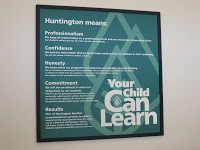Published on KSL (click HERE for the link)
Published in Cross Timbers Gazette (click HERE for the link)
I turned up the car radio and listened closely to the rest of an interview with a celebrity, wondering if I had perhaps misheard. I hadn’t. Here’s the quote (taken from the radio station’s website to ensure accuracy):
“You could name on one hand anyone who has one meal with the entire family sitting down together. It doesn’t happen anymore. And also, the meals that we had at home were the most horrible experiences of my life. (They were my stepfather’s) only chance to torture the family altogether, and so he made the most of it.”
How very sad for that man, I thought. My own kids would never suggest that eating a meal with their family is horrible.
Or would they? I guess it all depends on one’s definition of horrible. Family meals at my house can be challenging.
My kids often feel that saying things like “please” and “thank you” is highly inconvenient. And they find it irksome that they must eat their vegetables (which starving kids worldwide would be most grateful to take off their hands) if they want dessert. And they are put off by the fact that no one (Mom in particular) wants to watch food being chewed, even if the teeth doing the chewing belong to her very own children and are (mostly) cavity-free.
Admittedly, conversation is taxing at times. My cheerful and carefully worded inquiries about my kids’ days are at times met with grunts or eye rolls. Heated arguments break out over weighty matters, like who gets the last roll or whose turn it is to load the dishwasher. And my kids are forever trying to one-up and out-insult each other, prompting me to break out in song.
Oddly, my relatively pleasant rendition of “Let Us Oft Speak Kind Words” tends to have the opposite effect of its intended purpose.
Frankly, the kids aren’t the only ones who feel put upon. I’ve come away from an undisclosed number of family meals feeling as if I have just run the gauntlet, after which I devise clever schemes like installing pet flaps on each child’s door and serving meals via cafeteria tray.
But just as I’m about to head to the home improvement store for small rubber doors, I pause and reflect on what truly transpires at our family dinner table.
We learn life lessons. Recently, my 11-year-old son asked his 14-year-old brother for water and was handed a glass of water, scalding hot. I intervened by clarifying that the water must be cold. My son was soon spewing cold, salty water across the kitchen table. Unwilling to take any more chances, he got up to secure his own water. My 14-year-old then offered some sage advice, “It just goes to show that if you want to get something done, you have to do it yourself.”
We try our hands at solving conundrums. My son once queried, “Those stories about lambs being eaten by lions don’t make sense. Lambs don’t even live on the Savannah — when would that ever happen?” My daughter gave it her best shot, “At the zoo, maybe?”
We share trivia and (ideally) show tolerance. For example, I have learned at my kitchen table that kangaroos can’t hop backwards and that a cow can be led up stairs but not down. My 6-year-old even insisted that the initials S.I. stand for “Shoe Ice Cream.” My kids argue over many things at the table, but they didn’t challenge their baby brother on that issue. Instead, they smiled and wondered what shoe ice cream might taste like. The consensus was probably not very good.
We feel and (ideally) show empathy. One of my sons has gone to great lengths to rid himself of freckles. At the dinner table one night, he was particularly distressed and fervently wished his freckles gone. His is older sister listened to his complaints and said, “I have freckles, too. They’re not that bad — they’re kind of cute on you.” My daughter has one, maybe two freckles. I blinked back tears, thanking her with a huge wink.
Orchestrating regular family meals can be tricky — preparation, management, cleanup — not to mention getting everyone home at the same time. And even when all of those variables align perfectly, one person’s rotten day can easily derail the meal experience for everyone else.
Yet shared meals can anchor a family. According to Time magazine’s “The Magic of the Family Meal,” social scientists say that family meals act as a kind of vaccine, protecting kids from all manner of harm.
In fact, experts in adolescent development say that “it’s in the teenage years that this daily investment pays some of its biggest dividends. Studies show that the more often families eat together, the less likely kids are to smoke, drink, do drugs, get depressed, develop eating disorders and consider suicide, and the more likely they are to do well in school, delay having sex, eat their vegetables, learn big words and know which fork to use.”
Are we as parents undervaluing ourselves when we conclude that sending kids off to every conceivable extracurricular activity is a better use of time than an hour spent around a table, just talking to Mom and Dad?
My kids’ meal experiences will never resemble Beaver Cleaver’s. But in anticipation of the next hilarious, delightful, thought-provoking or poignant mealtime moment — and I know that these will occur, albeit irregularly — I’m going to set food on the table, invite everyone to sit down and see what happens.
Despite the occasional horrible episode, I suspect it will all be worth it.










